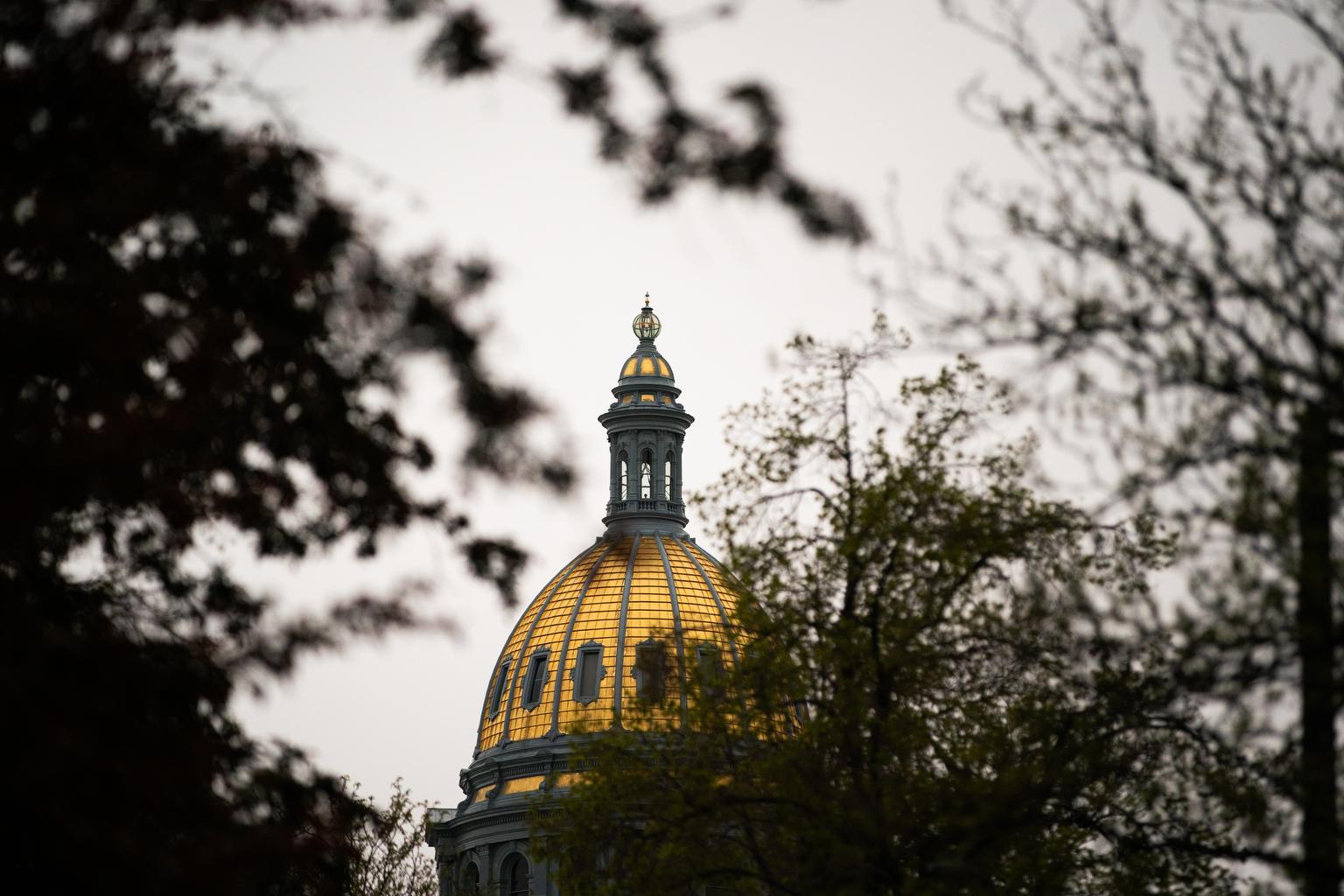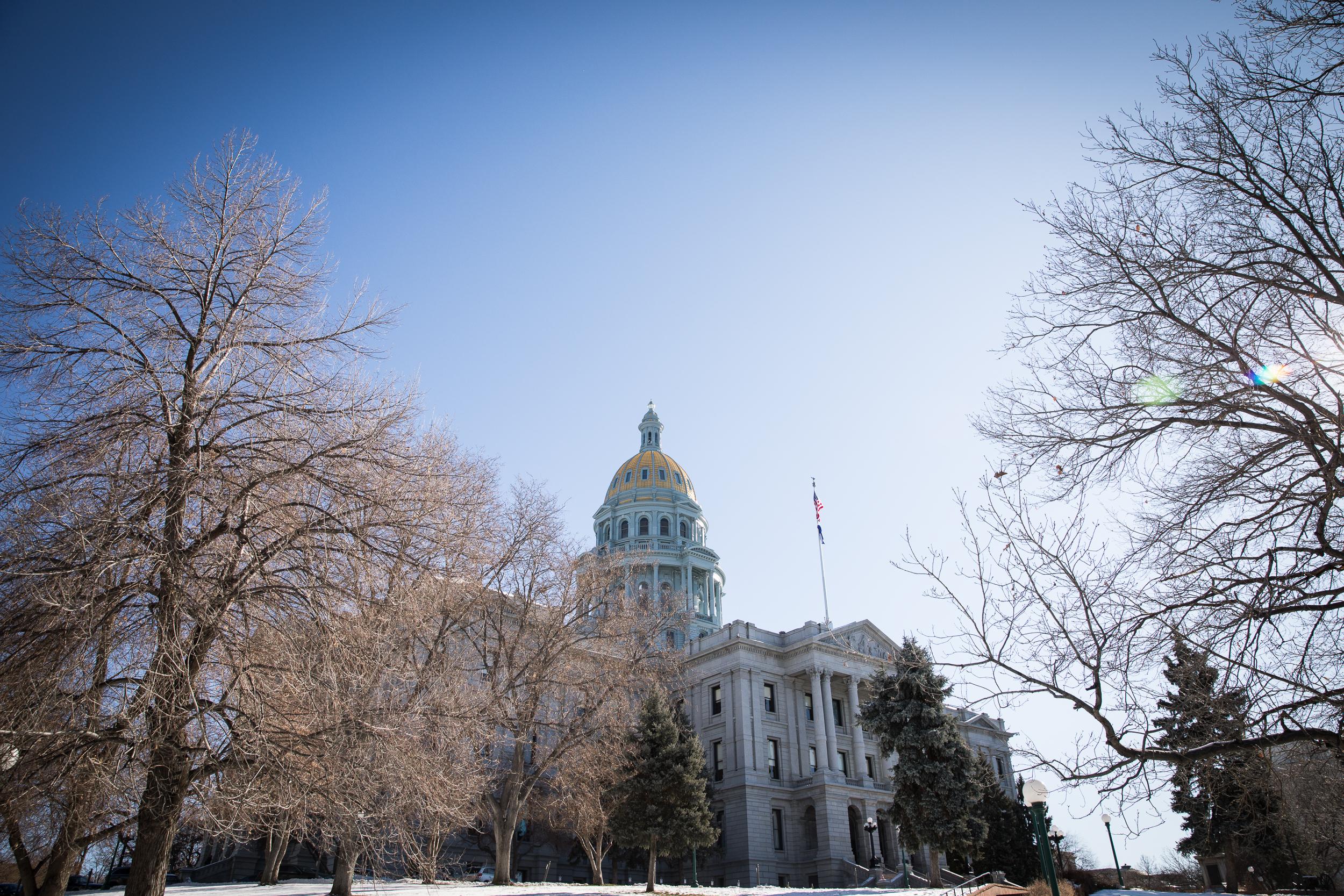
Colorado’s Democrats face a big decision as the state legislature gets underway: What don’t they want to do?
The party won sweeping victories in 2018, passed major legislation in 2019, and easily survived conservative-backed recall campaigns over the summer. Now, Democrats enter a second session with full control of the legislature and the governor’s office.
The question is just how much they’ll try to achieve in a year that will be politically packed with both state and federal elections, hot-button ballot measures, and likely a presidential impeachment trial.
In the past, the majority party has been more cautious in election years. But some legislators are expecting Democrats to enter this year at full steam.
“It’s not just any election year. President Trump is leading off the ballot, we have a half-dozen major ballot issues,” said state Rep. Matt Soper, a Republican representing Delta and Mesa counties. With so much uncertainty, he said, “I think both parties and particularly the Democrats are pushing their dream bills this year.”
State Rep. Tracy Kraft-Tharp, a Jefferson County Democrat who’s been in the legislature since 2013, said that the younger first-term Democrats are particularly ambitious.
“I think that they demonstrated last year that they have an idea of what they think should happen in the legislature," Kraft-Tharp said.
The most obvious comparison is the 2014 session. That was another election year when Democrats controlled the legislature, and they were coming off a very ambitious and controversial 2013 session. The Democrats kept a relatively low profile in 2014 — but lost the Senate anyway.
This year, big issues like setting up a statewide paid family leave program may dominate the session.
“That’s the kind of stuff that I think they would have held off on (in previous election years),” said Mark Waller, an El Paso County commissioner and former Republican House minority leader.
Indeed, state Sen. Faith Winter, a primary sponsor of the paid family leave bill, said that election-year fears won’t slow the effort.
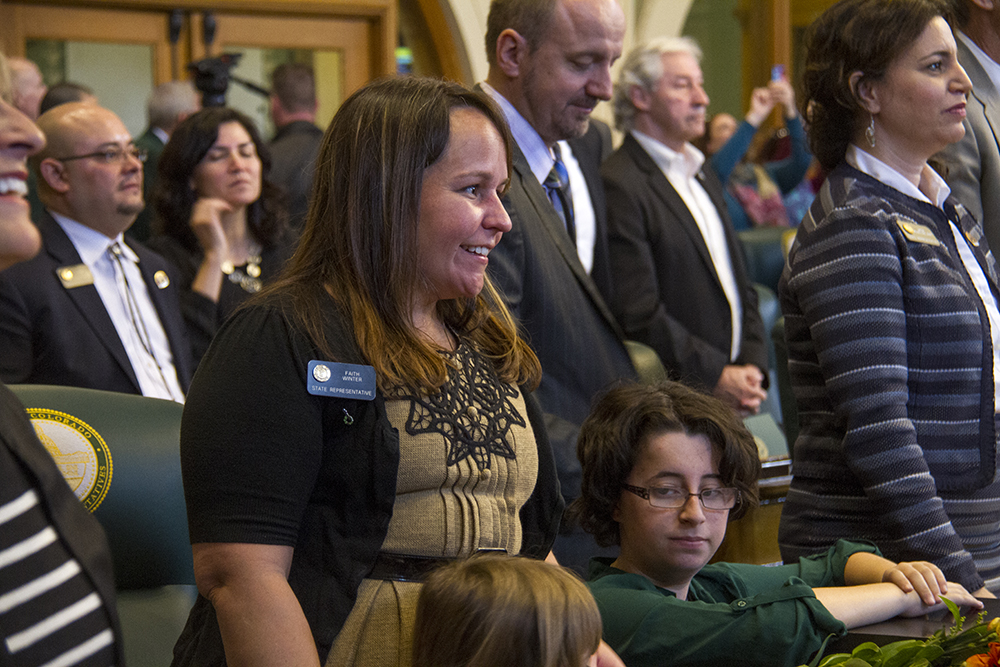
“I think whether it’s an election year or not, we want to be responsive to what the voters want,” said Winter, a Democrat.
The upcoming bill has secured early support from leadership of the Senate and House, she said. Gov. Jared Polis’ office said he was committed to working cooperatively on a family leave program.
“This is the year that we want to deliver on paid family leave, and the momentum is there to do so,” she said.
The plan will face questions within the party, though. The sponsors haven’t announced how it will be funded.
“I want to make sure that we’re thoughtful about that bill when it comes to not putting an undue burden on our businesses,” said state Rep. Julie McCluskie, a Democrat representing mountain communities. She’s especially concerned about ski resorts and their seasonal employees.
Senate President Leroy Garcia acknowledged that Democrats are looking at a broad spread of priorities. His caucus’s priorities this session include everything from tackling paid family leave and health care costs to stricter gun laws, vaping, vaccines, school finance and repealing the death penalty.
“That’s a list that definitely helped get us elected,” he said in a recent interview, laughing.
Garcia said the party should take on “bread and butter” issues, arguing that Democrats’ agenda had won the 2018 election and helped them survive the 2019 recalls, including an effort that targeted him directly.
“We’re really excited by the new opportunity that presents itself now in 2020, this new decade,” he added. But Garcia, seen as a moderate, cautioned his fellow Democrats against unilateral action.
“Be mindful of the fact that we still need to continue to operate through cooperation,” he said.
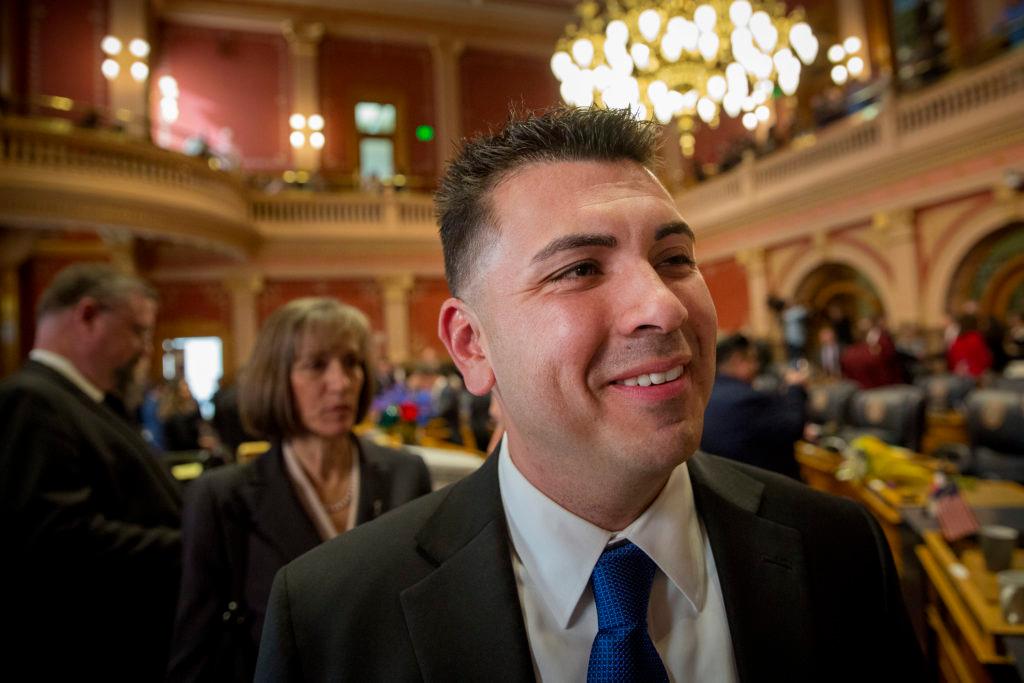
Garcia didn’t directly answer a question about whether he expected a relatively ambitious agenda this year.
“That’s rather subjective,” he said. “ … If the policy's ready, and the time is right, and we have consensus and collaboration, then the policy’s probably going to advance.”
Meanwhile, Republicans in the statehouse have limited expectations.
“The sad reality for being in the double minority (of the House and Senate) … is that whatever we can get done, we have to get agreement from the majority,” said Chris Holbert, the Senate Minority Leader, in an interview with Colorado Matters. “There’s no way to go around them.”
One area of cooperation could be criminal justice reform. A bill to eliminate cash bail for minor offenses passed unanimously last year. Some of the same sponsors, including Soper and some Democrats, want to try a similar bill this year.
Republicans will also once again push to put more state general-fund tax money into roads and bridges, Holbert said. And the party is likely to trumpet its message of fiscal conservatism amid a potential new challenge to TABOR.
Meanwhile, the Democrats won’t exactly have unlimited power.
With a soft cap on the number of bills they can introduce and only 120 days in session to debate them, they’ll have to pick and choose their battles — a task that can be especially difficult for issues such as gun policy, which plays differently in rural Colorado. And Republicans could again use delaying tactics, such as requiring bills to be read out loud, to gain some leverage.
“There’s just a feeling of, ‘If you don’t listen to the minority, then we need to do something to try to be heard.’ We’re still people’s representatives here,” Soper said.
Here are brief summaries of some of the issues that could prove polarizing in the legislature this year.
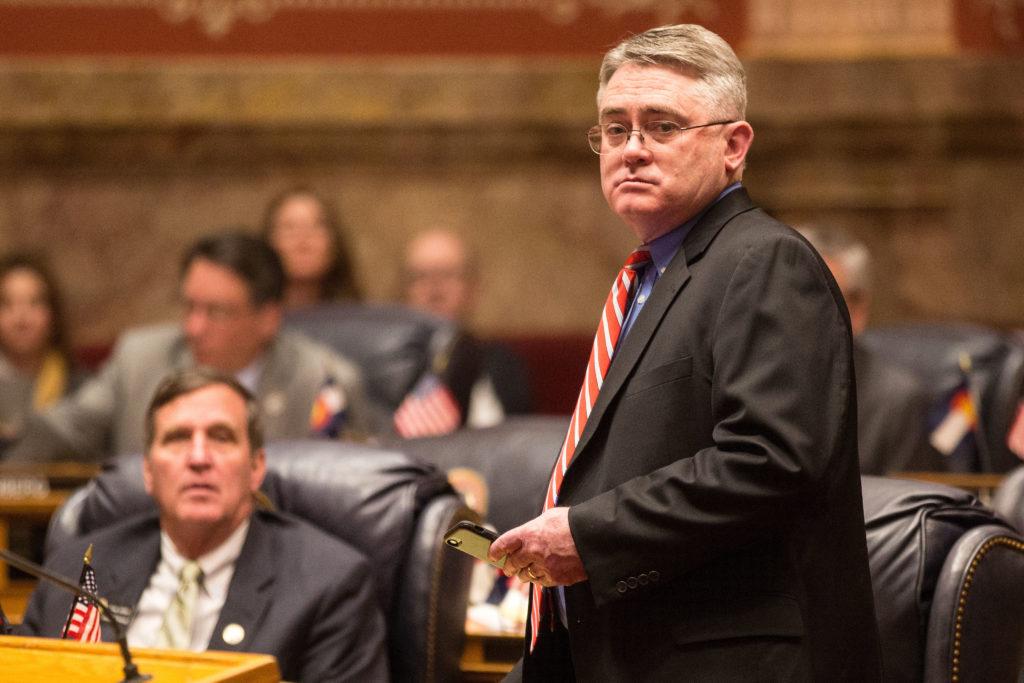
Paid family leave:
- A bill last year would have given 12 weeks of paid time off for all workers to care for new children or for loved ones with illnesses. Instead, it became a task force to study the fiscal ramifications of the idea. The previous proposal would have had employees and employers pay a portion of salaries to fund the program. It’s unclear how lawmakers would opt to structure it this time.
Vaccines:
- Colorado is last in the nation for kindergarten vaccinations for some diseases. Last year, Gov. Jared Polis’ helped to sink a bill that would have made it more difficult to seek a non-medical exemption from vaccine requirements. The Denver Post reports vaccine supporters plan to introduce a new version this year.
Collective bargaining for state workers:
- Colorado is one of a minority of states where state employees can’t negotiate a binding union contract. Gov. Jared Polis said he had concerns about a related bill, but promised to “successfully resolve the outstanding issues” ahead of the 2020 session.
Death penalty repeal:
- A proposal to abolish the death penalty divided Democrats last year. Sponsor Sen. Julie Gonzales withdrew her bill facing opposition in the party, including from Sen. Rhonda Fields, whose son and daughter-in-law-to-be were murdered. Death penalty opponents could try again this year.
Gun laws:
- Last year, the Democratic legislature passed a “red flag” gun law that allows courts to temporarily remove guns from people who might harm themselves or others. This year, legislators are interested in requirements for gun storage and for reporting stolen or lost firearms, among other ideas.
Health care:
- The Polis administration has proposed a “public option” for health insurance, which they say will create cheaper premiums through an insurance plan that is administered by carriers and supervised by the state. It needs approvals from lawmakers.
School finance:
- Lawmakers have been debating for years about how to rewrite the state’s school funding formula. One proposal would deliver more funding to schools with low-income families. It didn't advance out of a committee, but it could reappear anyway. Another bill would try to even out the tax rates that residents in different districts pay toward schools.



